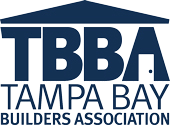
April 28, 2025
As the ancient English philosopher John Locke once said, the end of law is not to abolish or restrain, but to preserve and enlarge freedom. For in all the states of created beings capable of law, where there is no law, there is no freedom.
As we begin the final week of Florida’s 2025 Regular Legislative Session, the building industry has much to appreciate. The preservation and enlargement of freedom has been our aim this session, and our aim has been true. While new law is not yet carved in stone and possible surprises still lie in wait, great progress has come in focus, thanks to extraordinary efforts and continued advocacy.
The Florida Home Builders Association and its Government Affairs Committee identified last year certain key priorities to pursue this session, some of which were the beginning of groundwork for the next session or two, while others had, and still have, the possibility of making it across the finish line this year. Examples include impact fees (preventing abuse by local government of extraordinary circumstances exception), art fees (preventing local government from charging them), expanding mitigation banking opportunities, and streamlining the development process in some ways, with those ways to be expanded in future sessions. Many of these key priorities have made it to the final stages of the process, surviving challenges to them and wholesale efforts to kill them. We have also monitored and advocated against hundreds of bills which would impair the very freedom of opportunity builders and developers seek to preserve and enlarge.
Interesting developments from week seven include:
- Impact/Art Fees (SB 1080/HB 579): The Senate Bill passed its final committee with amendment. The most interesting of the amendments indicates that extraordinary circumstances cannot exist simply because local government has failed to raise its impact fees in the past five years. While the Senate Bill narrowly failed (one vote) on the full floor, a motion for reconsideration was made and therefore the bill is likely to be voted on again. The House Bill passed its final committee and will soon get its vote on the House floor. It remains unclear which version may get across the finish line, but both seem poised to get a favorable vote in their respective chambers.
- Mitigation Banking (SB 492/HB 1175): The Senate Bill is on special order calendar and could soon be heard on the Senate floor. The House Bill has been added to the second reading calendar. Both bills are progressing positively.
- DBPR Deregulation/Community Redevelopment Agencies (HB 991/SB 1242): The DBPR aspects of the bills may be just laying groundwork for future sessions. The bills have not been heard in either a House or Senate Committee and committee work is now closed. While they could, theoretically, still get a positive vote on the floor, it seems unlikely such a substantial restructuring will be voted favorably when it has not been workshopped in any committee. Amendments have been put forth on the Community Redevelopment Agencies aspect of the bills, one of which would not entirely phase them out. It remains unclear whether these bills will receive favorable votes this year.
- Platting (SB 784/HB 381): The Senate Bill received a favorable vote on the floor and is in messages, meaning it is being sent to the House for consideration there. The House Bill has been added to second reading and should soon get its-own vote on the floor. One of these bills is likely to make it across the finish line.
- Emergencies (SB 180/HB 1535): The Senate Bill received a favorable vote on the Senate floor and is in messages to the House. The House Bill is on second reading and should soon be voted on the House floor. One of these bills is likely to make it across the finish line.
- Waiver and Release of Liens (SB 658/HB 893): The Senate Bill previously received a favorable vote on the Senate floor and is now in messages to the House. The Senate Bill does not contain the provisions which strip lien rights away from subcontractors and material suppliers. The House Bill, which does strip lien rights, was never heard in its final committee. In a normal session that would be the death of the bill. This, however, has been one of the most unusual sessions in this author’s decades long leadership in politics and legislative advocacy. It remains technically possible that the House could take this up on the floor. However, for a bill to become law, both chambers must pass identical versions. Reading the tea leaves, it appears that our advocacy is working: the Senate does not presently support the concept of the House Bill. The fight, however, is not yet over.
- Affordable Housing (SB 1730/HB 943): The Senate Bill, with amendment, received a favorable vote on the floor. The amendment, among other things, requires counties to authorize multifamily and mixed-use residential projects in portions of any flexibly zoned area, such as a PUD for commercial, industrial, or mixed use. It also prohibits counties from requiring more than ten percent of the total square footage be used for non-residential purposes. The amendment also provides a dispute resolution mechanism and grants developers the right to recover attorney’s fees against the county should the developer prevail. The House Bill is on second reading calendar.
- Expanded Pre-Emption of Utility Service Restrictions (SB 1002/HB 1137): The Senate Bill is on special order calendar Monday. The House Bill has already received a favorable vote on the floor. This is likely to make it across the finish line in some form.
- Construction Regulation (SB 712/HB 683): The Senate Bill has not moved since its rules committee favorable vote whereas the House Bill received a unanimously favorable vote on the House floor, with amendment. Among other things, the amendment imposes a deadline for local government to make a decision on a contractor’s proposed change order, and if it fails to do so, the change order is deemed approved.
- Budget: The budget is a long way from being passed by the legislature and presented to the Governor. For the first time in years, the budget work will be incomplete at the close of regular session, so either an extended or a special session (a special session permits work only on the item in question, the budget, whereas an extended session is not so limited) will be triggered to complete budget work. Fortunately, at this time none of the above-described policy work is likely to be impacted by budget considerations. Unlike the federal government, and even other states, Florida’s Constitution thankfully requires the adoption of a balanced budget. The tax relief matters before the legislature have complicated an already complicated session. As of this writing, Senate and House leadership have not yet decided upon allocations (how much funding for each subject area). Once allocations have been decided upon, budget conference negotiations between the two chambers will commence in earnest, leading to the passage of the General Appropriations Act. The Governor is preserved a lien item veto, which he has fifteen days from budget presentation to exercise. At this time it is therefore impossible to predict what funding will be available for construction and development industry interests.
Each of the above-referenced bills is hyperlinked to the relevant Senate and House pages should you wish to read more, but, of course, please feel free to telephone or write me if you would like any additional information or have any questions. It is with pleasure that I continue to remain at your service.

Justin R. Zinzow, CEO
Zinzow Law, LLC
ZinDocs, LLC
(727) 787-3121


